Our Location
Jl. Mastrip No.9A, RT.7/RW.3, Rambutan, Kec. Ciracas, Kota Jakarta Timur, DKI Jakarta
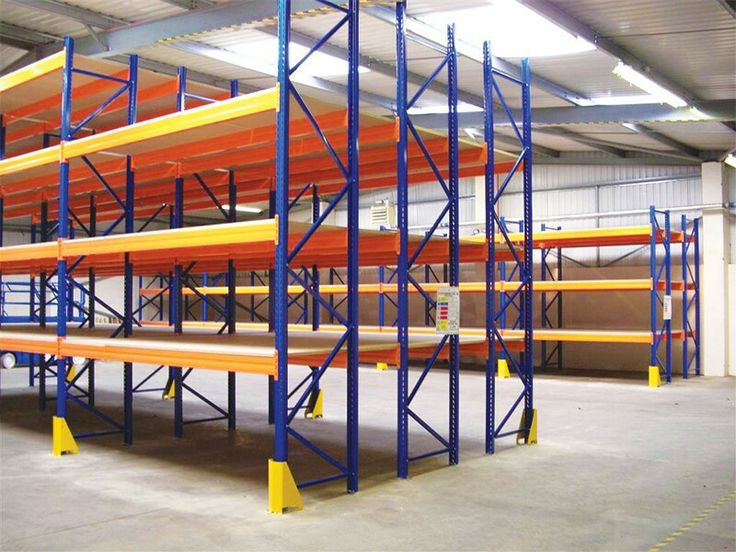
In today’s rapidly evolving industrial and commercial landscapes, efficient storage solutions are more critical than ever. High capacity storage shelves have emerged as indispensable tools for warehouses, factories, retail spaces, and even offices, offering a robust solution to maximize space utilization, enhance operational efficiency, and ensure the safe storage of goods. This article delves into the various aspects of high capacity storage shelves, including their types, benefits, design considerations, and applications.
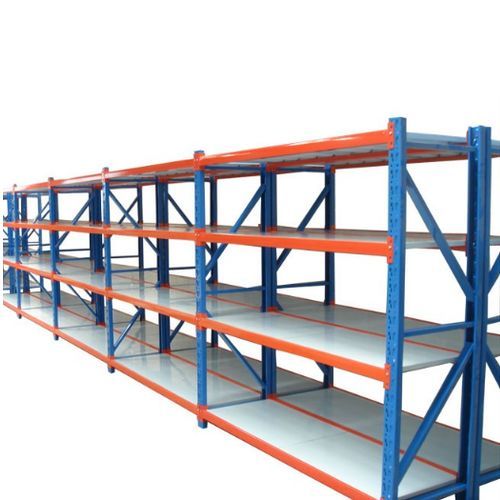
High capacity storage shelves are designed to hold large quantities of items and withstand significant weight loads. These shelves are typically constructed from durable materials such as steel, ensuring longevity and stability under heavy use. They are essential for environments where space optimization and efficient inventory management are paramount.
There are several types of high capacity storage shelves, each tailored to specific storage needs and environments. Some of the most common types include:
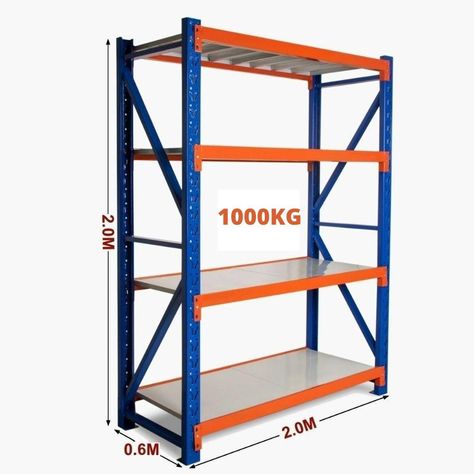
High capacity storage shelves maximize vertical and horizontal space, allowing facilities to store more items within the same footprint. This is particularly beneficial in urban areas where real estate costs are high.
With organized shelving systems, inventory can be categorized and stored systematically, making it easier to track and manage. This reduces the risk of stockouts and overstocking, leading to more efficient inventory turnover.
High capacity storage shelves are designed to safely hold heavy loads, reducing the risk of accidents caused by overloading or improper stacking. Many systems also include safety features such as load beams, wire decking, and safety bars.
Efficient storage solutions streamline workflows by ensuring that items are easily accessible. This reduces the time spent searching for products and allows workers to focus on more value-added tasks.
By maximizing space and improving inventory management, high capacity storage shelves can lead to significant cost savings. Facilities can avoid the expense of expanding or relocating by optimizing their existing space.

When designing a high capacity storage system, several factors need to be considered to ensure the system meets the specific needs of the facility:
Understanding the weight and size of the items to be stored is crucial. Shelving systems must be designed to support the maximum load without compromising safety or structural integrity.
Analyzing the available space and designing a layout that maximizes storage capacity while ensuring easy access to items is essential. This includes considering the height of the space, aisle width, and any obstacles such as columns or beams.
Ensuring that items are easily accessible is key to maintaining efficient operations. This may involve designing shelves with adjustable heights, incorporating mobile shelving units, or using automated retrieval systems.
Choosing the right materials is critical for durability and longevity. Steel is commonly used for high capacity storage shelves due to its strength and resistance to wear and tear.
Incorporating safety features such as load indicators, guardrails, and anti-tip mechanisms can prevent accidents and ensure the well-being of workers.
Designing a storage system that can be easily expanded or reconfigured as the needs of the facility change is important for long-term flexibility and cost-effectiveness.
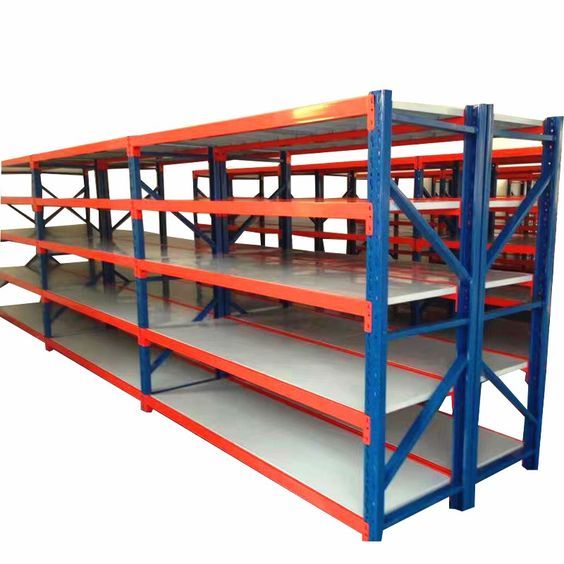
High capacity storage shelves are used in a wide range of industries and settings. Some common applications include:
In warehousing and distribution centers, high capacity storage shelves are essential for storing large quantities of products and facilitating efficient order fulfillment processes. Pallet racking systems and automated storage solutions are commonly used in these environments.
Manufacturing facilities use high capacity storage shelves to store raw materials, work-in-progress items, and finished goods. Heavy duty shelving and cantilever racking systems are ideal for these applications due to their ability to support heavy loads and bulky items.
Retail environments, especially those with large inventories such as home improvement stores and supermarkets, use high capacity storage shelves to keep products organized and easily accessible for restocking and customer browsing.
The automotive industry requires storage solutions for parts, tools, and equipment. High capacity storage shelves such as heavy duty shelving and mezzanine systems provide the necessary support and accessibility.
In cold storage facilities, high capacity storage shelves are designed to withstand low temperatures and provide efficient storage for perishable goods. Pallet racking systems and mobile shelving units are commonly used in these environments.
Libraries and archival facilities use high capacity storage shelves to store large volumes of books, documents, and other media. Mobile shelving systems are often employed to maximize space and provide easy access to materials.
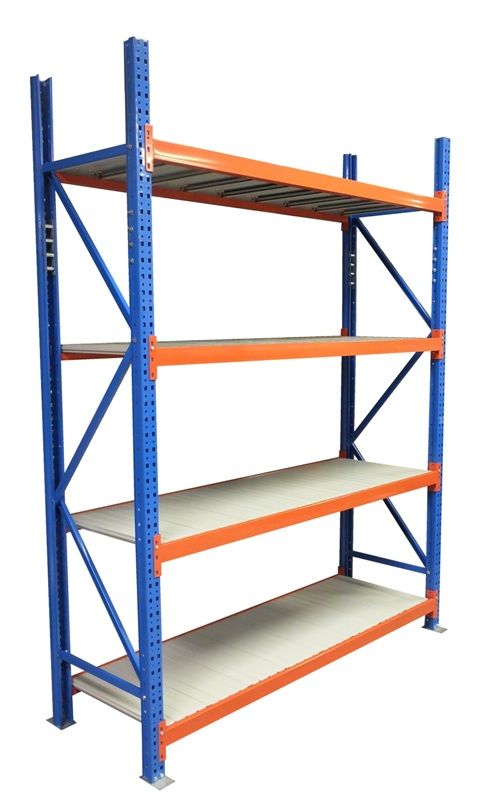
High capacity storage shelves are a fundamental component of modern storage solutions, providing the necessary support and organization for a wide range of applications. From warehouses and manufacturing facilities to retail stores and libraries, these shelves enhance efficiency, safety, and cost-effectiveness.
By understanding the different types of high capacity storage shelves and their benefits, as well as considering key design factors, businesses can implement storage solutions that meet their specific needs and support their operational goals. Whether optimizing existing space or planning a new facility, investing in high quality storage shelves is a strategic move that can yield significant long-term benefits.
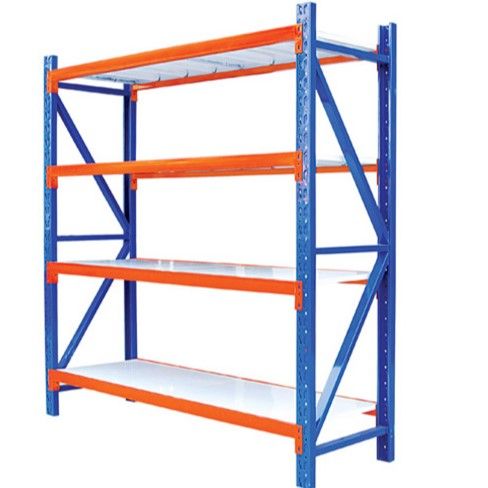
Untuk memesan atau mendapatkan informasi lebih lanjut tentang rak gudang kapasitas besar untuk warehouse industri, hubungi tim marketing kami di:
Telepon: 021-87786434 / 87786435 / 87786436
WhatsApp: 081288551012 / 081296786785 / 082184497726
Tim kami siap membantu Anda memilih produk yang tepat dan menjawab semua pertanyaan Anda.
Terima kasih,